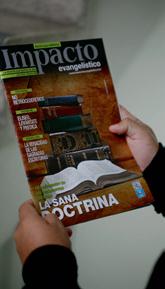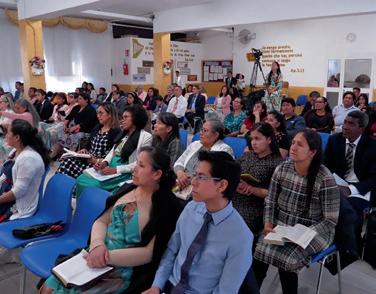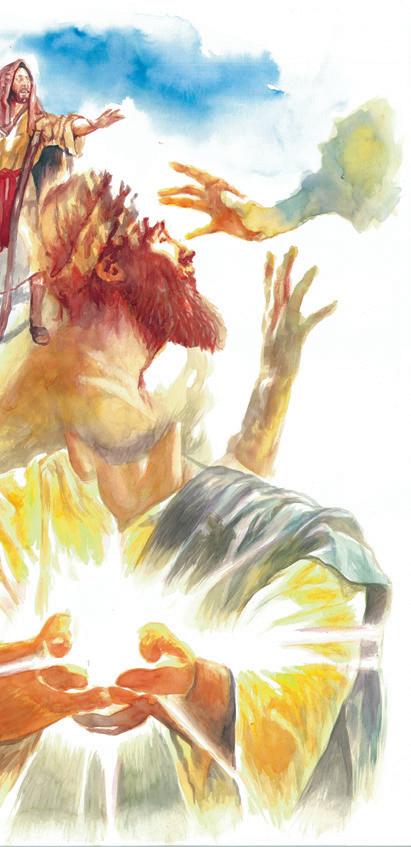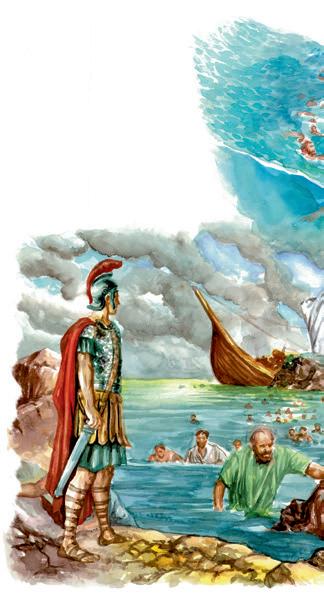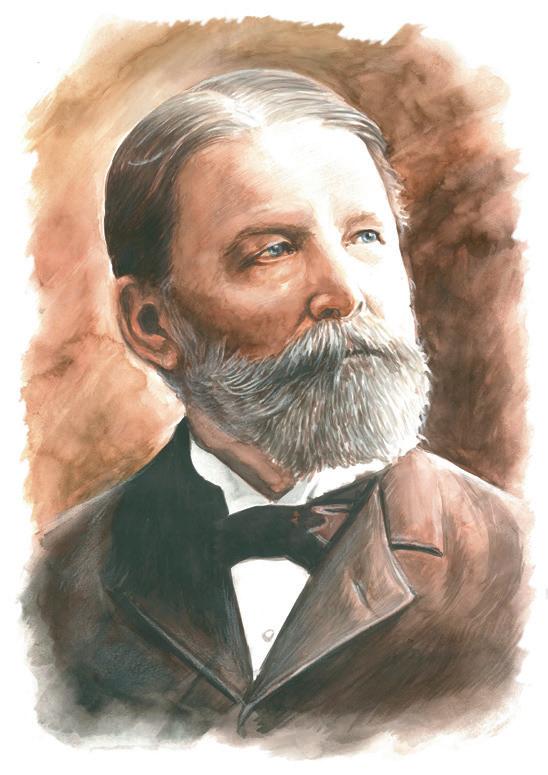
6 minute read
Literature THE OTHER GOSPELS
from 787_English
THE OTHER GOSPELS LITERATURE
Christian theologian and writer Pablo Hoff describes the new threats against Christian faith and speaks about the most proselytizing and dangerous sects in South America.
Advertisement
What is a cult? According to Josh McDowell and Don Stewart, it “is a perversion, a distortion of biblical Christianity and/or a rejection of the historic teachings of the Christian Church.” Christianity is acknowledged as a religion based on the Bible and Christians, as the “people of the Book.” Cults generally accept some biblical teachings, reject others, and add new doctrines. They preach “the other Gospel,” twisting the truth “unto their own destruction” (2 Peter 3:16). Their members are people who blindly follow an “innovator” of doctrines and ideas.
Hoff wrote The Other Gospels near the end of the 20th century to inform believers of the new threats against Christian faith. In addition, the book introduces the most proselytizing and dangerous sects in South America, telling their stories, summarizing their doctrines, exposing their weaknesses, and giving biblical answers that disprove their particular doctrines.
ENEMIES OF FAITH If you read the Book of Mormon and the other writings that they use to gain new followers, you would think that the Latter Day Saint Movement is orthodox concerning the most relevant doctrines. They claim to believe in the Trinity as well as in Jesus-Christ’s divinity, atonement, redemption and role as a mediator. Nevertheless, scholars who have done research into their doctrines and have read the sermons and revelations of their prophets state that they have developed a brand new theology based on the rejection of the Church established by Christ. They worship another Jesus-Christ, another Gospel, and another Holy Spirit. Mormons believe in many gods, and “these gods are ordered according to a progressive hierarchy, some being in a more advanced state than others.”
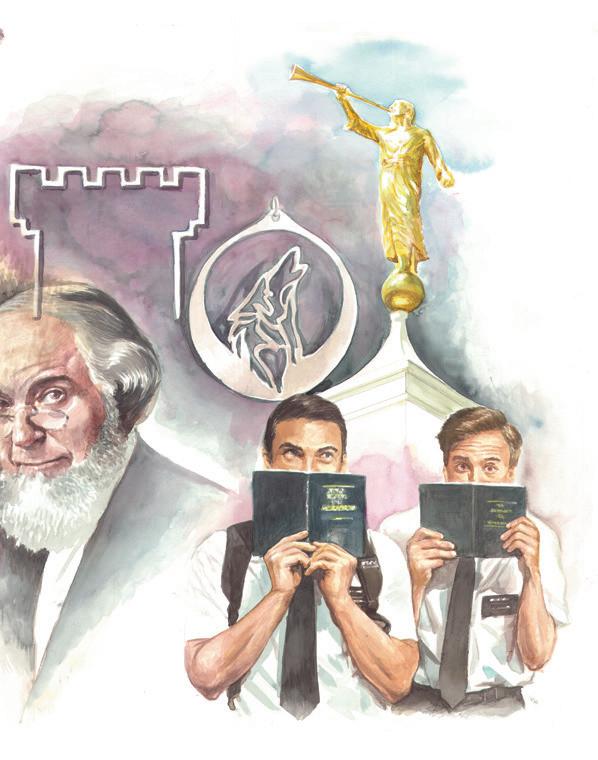
LITERATURE
American missionary Pablo Hoff has preached God’s Word in Argentina, Bolivia, and Chile. In The Other Gospels he exposes the ideology of religious groups that not only fail to follow the Holy Scriptures, but also manipulate the truth and spread chaos and confusion among believers. His book is a tool to identify these enemies of faith, to recognize their beliefs, and to expose them.
Jehovah’s Witnesses have published no statement of faith or doctrine, but they categorically deny the adoption and influence of any of Russell’s ideas, and state that they take their teachings directly from the Bible. Josh McDowell observes, however, that they “misuse the Scriptures in order to support their own beliefs. They do it mostly by quoting verses out of context and leaving others out. In practice, their own writings have priority over the Scriptures.” What is more, the translators of their version of the Bible are blamed for distorting some biblical verses to match the notions of Russell and Rutherford, which contradict the Scriptures.
MANY CULTS Hoff ’s book is divided in two parts and contains relevant information about Mormonism, Jehovah’s Witnesses, spiritism, occultism, astrology, satanism, Hinduism in the West, the New Age movement, the Seventh-day Adventist Church, and the Jesus Only Movement. It is an in-depth study of religious groups that have been spreading misconceptions across Latin America.
Of all the forms of religion, spiritism is the most ancient one as well as the most condemned by God. Spiritism is the belief that it is possible to communicate with invisible spirits and dead people in order to ask for their guidance and support. It is said that the first medium was the serpent of the Garden of Eden. Religions of ancient Egypt, Assyria and Babylon included elements of occultism in their ceremonies. Similarly, sorcery was common practice among Canaanites and Phoenicians. And the oracles of Delphi were famous in Greece despite their way of giving their counsel. Charles R. Erdman states: “The inspiration of Greek sorcerers and fortune tellers was conveyed in savage frenzy and they glorified madness.”
Floyd Woodworth wrote the prologue and made a comment on the context of the publication. He states: “We are surrounded by swarms of preachers of different philosophical theories and extra-biblical religious doctrines. Many ideas influence our word without us realizing. These agents are in plain sight on the streets but we do not bother to know more about their ideas or their origin.”
Satanists say that they do not seek members, but Satanist cults attract people by promising solutions to all
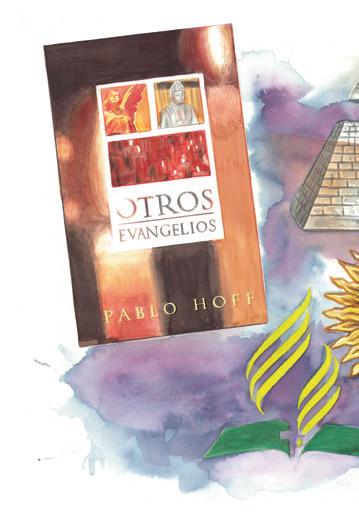
American missionary Pablo Hoff has preached God’s Word in Argentina, Bolivia, and Chile. In the Other Gospels he exposes the ideology of religious groups that not only fail to follow the Holy Scriptures, but also manipulate the truth and spread chaos and confusion among believers. His book is a tool to identify these enemies of faith, to recognize their beliefs, and to expose them.

Hoff’s book is divided in two parts and contains relevant information about Mormonism, Jehovah’s Witnesses, spiritism, occultism, astrology, satanism, Hinduism in the West, the New Age movement, the Seventhday Adventist Church, and the Jesus Only Movement. It is an in-depth study of religious groups that have been spreading misconceptions across Latin America.
kinds of problems (e.g. to gain power and status or to harm their enemies). People are first introduced to magic, which at first glance seems harmless, and they are promised wealth, professional success or sex appeal. Satanism basically promises the complete fulfilment of three ambitions: power, sex and revenge. Satan finds followers among those willing to resort to aberrant means to meet their selfish goals, without realizing that they are just falling into the devil’s trap.
CHRISTIAN LOVE Published in 1993, Hoff explains in the last part of the book which are the steps necessary to gain the followers of the other gospels. He says that Christian love can disarm those who actually expect rejection and persecution. Similarly, he states that the followers of false religions are blinded by the earthly god, but that only the Holy Spirit can persuade them against their wrongdoings.
Some scholars, after studying other gospels, no longer classify Adventists as members of a cult. They believe in biblical inspiration, the Trinity, Christ’s holiness, virgin birth and atonement, and many other evangelical doctrines. Therefore, why should we concern about Adventism? Because although many of its doctrines are orthodox, they have many others that are not. For instance, they divert some of their beliefs on death and the afterlife from the biblical sense, they exaggerate the observance of the seventh day as a rest day, and they have accepted Ellen Gould White’s prophecy almost as “inspired,” using it to interpret the Bible. Christian followers should know about these bizarre ideas to be ready to refute them.
Pablo Hoff has thoroughly examined the Roman Catholic Church in the end of the second part of his book, showing some of the doctrines that contradict Christianity. He states, nonetheless, that explaining Catholic concepts in depth is a very complex task due to the variable conditions behind an institution of such widespread influence and power.
Conservative Protestants accept the Bible as the only source of divine revelation and authority. In contrast, the Roman Catholic Church states that the revealed truth lies both in the Scriptures and non-written traditions, such as the doctrines of the saints. In practice, the Roman Catholic Church exerts the magisterium (dignity and authority of the master) over the teachings. Councils determine the doctrine even if the Vatican denies its superiority: “The magisterium is not above God’s Word; it serves Him.” It is crystal clear that the sacred tradition, the Scriptures and the magisterial authority of the church are so closely related that one cannot exist without the other.

